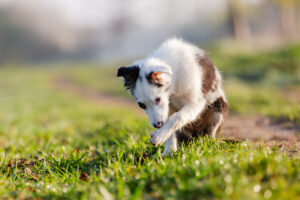Curious if your furry friend can partake in your culinary delights? Dogs can be tempted by the smells and tastes of human food, but not all treats are created equal when it comes to their health and safety. It’s essential to distinguish between foods that are safe for your dog and those that pose potential risks.
General Rule of Thumb:
Before sharing any human food with your dog, consult with your veterinarian. Their expertise can help tailor recommendations to your dog’s specific breed, size, age, and health conditions.
Safe Human Foods for Dogs:
- Lean Proteins: Cooked chicken, turkey, fish, or beef (without bones or excessive fat) can provide valuable protein and nutrients.
- Fruits and Vegetables: Certain fruits and vegetables can be healthy treats for dogs. These include apples (without seeds), blueberries, carrots, pumpkin, sweet potatoes, and green beans.
- Plain Rice and Pasta: Cooked plain rice or pasta can be a soothing option for an upset stomach, but should not be a staple in their diet.
- Plain Yogurt: Plain, unsweetened yogurt can be a source of probiotics that are beneficial for gut health.
- Peanut Butter: A spoonful of unsalted, xylitol-free peanut butter can be a tasty and healthy treat for dogs.
Human Foods to Avoid Feeding Your Dog:
- Chocolate: Chocolate contains theobromine, a compound that is toxic to dogs and can cause vomiting, diarrhea, seizures, and even death.
- Xylitol: This sugar substitute, often found in sugar-free gum and candy, can cause a rapid drop in blood sugar and liver failure in dogs.
- Grapes and Raisins: These fruits can cause kidney failure in dogs, even in small amounts.
- Onions and Garlic: These vegetables can damage red blood cells and lead to anemia in dogs.
- Avocados: Avocados contain persin, a toxin that can cause vomiting and diarrhea in dogs.
- Macadamia Nuts: These nuts can cause weakness, tremors, and hyperthermia in dogs.
- Alcohol: Alcohol can be extremely toxic to dogs and can cause seizures, respiratory failure, and death.
- Caffeine: Caffeine can cause restlessness, agitation, heart problems, and seizures in dogs.
- Bones: Cooked bones can splinter and cause serious injuries to your dog’s digestive system.
- Fatty Foods: Fatty foods can lead to pancreatitis, a painful and potentially life-threatening condition.
Why Dogs Should Eat Primarily Dog Food:
Commercial dog food is formulated to meet the specific nutritional needs of dogs, providing a balanced diet with the right proportions of proteins, fats, carbohydrates, vitamins, and minerals. Feeding your dog primarily dog food ensures they receive the necessary nutrients to thrive.
Tips for Sharing Human Food with Your Dog:
- Offer as a Treat: Human food should not make up more than 10% of your dog’s daily caloric intake.
- Cook Plain: Avoid adding seasonings, spices, or sauces to human food for your dog.
- Cut into Small Pieces: Ensure any human food you give your dog is cut into small, bite-sized pieces to prevent choking.
- Introduce Gradually: Introduce new foods one at a time to monitor for any allergic reactions or digestive issues.
Conclusion:
While it’s tempting to share your favorite foods with your furry friend, it’s crucial to prioritize their health and safety. Always consult with your veterinarian before introducing any new food to your dog’s diet. By making informed choices and following these guidelines, you can ensure your dog enjoys safe and healthy treats alongside their regular dog food.




